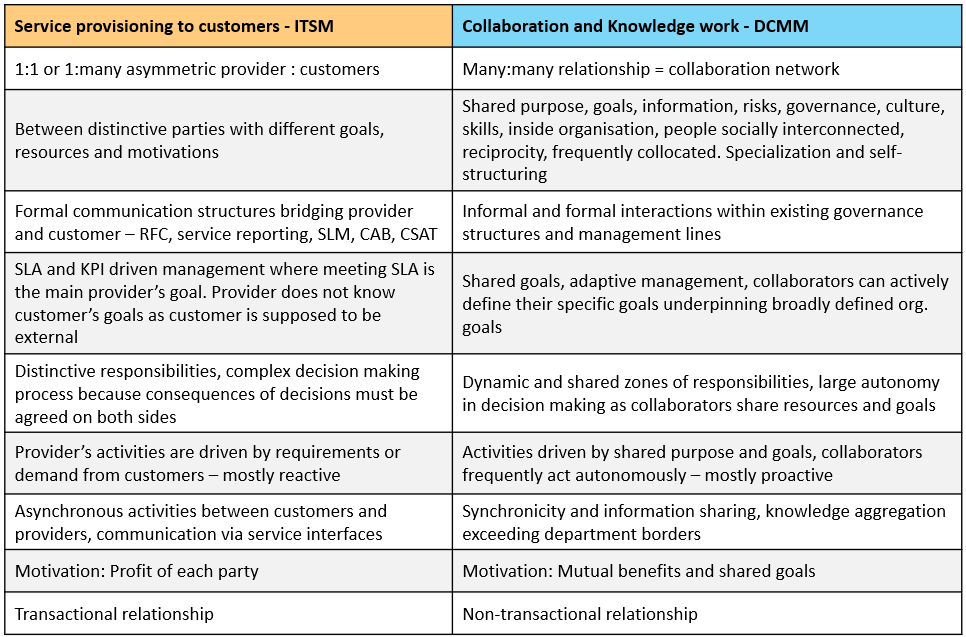Do We Really Need Service Level Management?
Service management, as a particular approach, presupposes an economic exchange between two distinct parties: the customer ordering and consuming services, and the provider delivering services bound by specific quality criteria. The essential need to define service quality forms the basis for service level agreements (SLAs), usually encompassing aspects like delivery time, uptime, mean time to restore service, responsiveness to customer inquiries, and support parameters.
However, the question arises: Do we need SLAs when people, teams, and departments collaboratively work towards shared goals, utilizing the same resources and achieving collective results? Do colleagues, families, communities, or even players in a team need SLAs?
The answer is no. Collaboration thrives not on economic exchange but on a shared purpose agreed upon by collaborators when they choose to participate, often formalized through employment contracts that define their roles.
In addressing the headline question, it becomes clear that service level management is context-dependent, primarily required as a foundational mechanism in transactional systems between different organizations.
Consider the scenario within internal IT. Does it necessitate defining a service catalog and associated service levels? What if SLAs are not explicitly outlined? Does it imply that IT performance will suffer? Can we identify positive outcomes from practicing service level management within organizations?
It’s challenging to make a case for the necessity of SLAs when there is no economic exchange (billing between distinct legal entities). Instead of SLAs, IT can offer a high-level description of system parameters based on historical results—such as ERT (expected resolution time) or the probability of change failure. This approach aims to provide colleagues in other departments with broad expectations rather than fixed guarantees.
Embracing a collaborative logic results in a significant reduction of administrative overhead introduced by transactional systems. The critical starting point for defining an appropriate management approach is asking the question: What type of relationship are we aiming to manage?
We must recognize the fundamental differences between transactional systems and collaboration networks, as illustrated in the table below.

This table is an integral part of the body of knowledge documented in the DCMM model, which endeavors to offer a distinct paradigm for managing internal IT through the application of knowledge work principles and the concepts of collaboration networks.